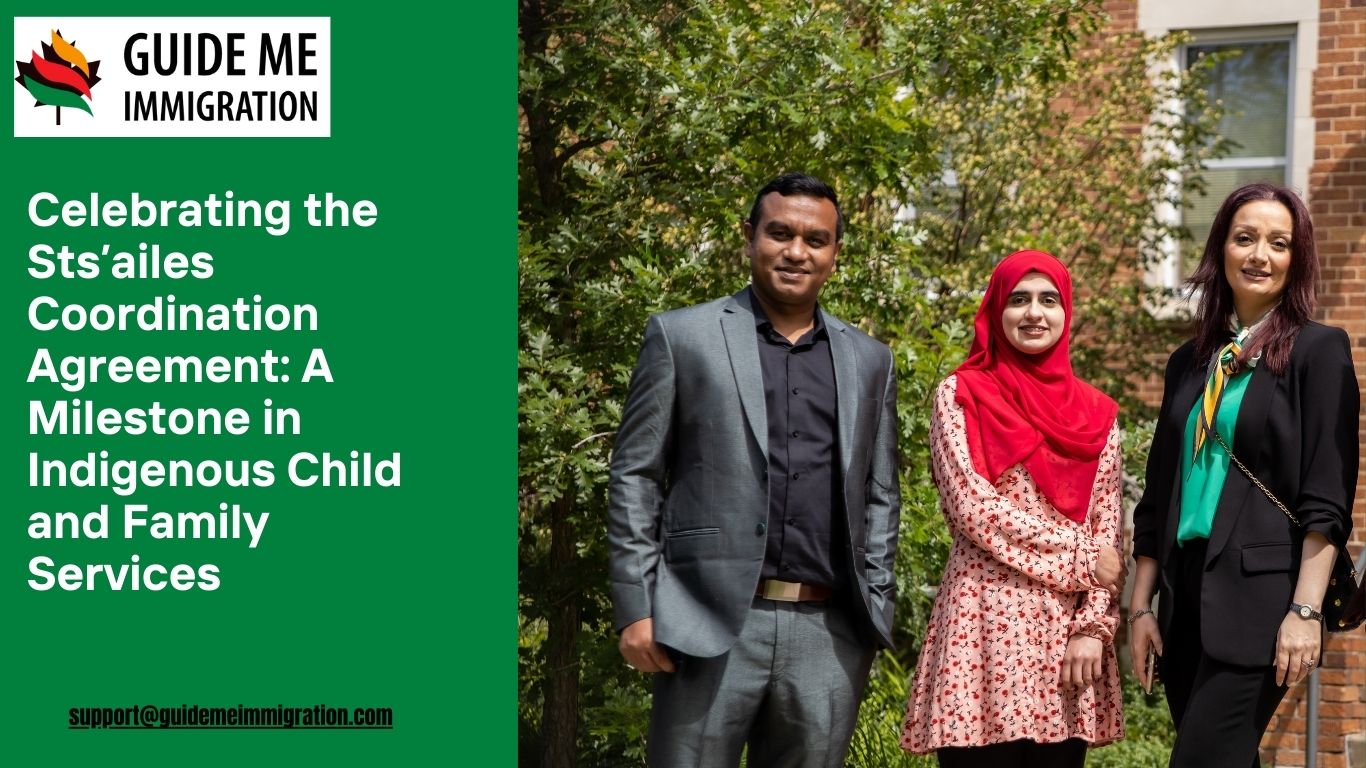Celebrating the Sts’ailes Coordination Agreement: A Milestone in Indigenous Child and Family Services
On September 6, 2024, a historic agreement was signed in Sts’ailes Xa’xa Temexw, a significant moment for the Sts’ailes community, Canada, and British Columbia. This coordination agreement marks a pivotal step in supporting Indigenous child and family services, demonstrating a strong commitment to honoring the cultural heritage and governance rights of the Sts’ailes people. The agreement was celebrated in the presence of key figures, including the Honourable Patty Hajdu, Minister of Indigenous Services, and the Honourable Grace Lore, British Columbia’s Minister of Children and Family Development. This post delves into the essence of this groundbreaking agreement and its implications for the future of Indigenous child and family services in Canada.
The Significance of the Coordination Agreement
The coordination agreement signed by Sts’ailes, Canada, and British Columbia is a landmark development in the realm of Indigenous child and family services. This agreement, pursuant to An Act respecting First Nations, Inuit and Métis children, youth, and families, and B.C.’s Child, Family and Community Service Act, signifies a profound shift towards recognizing and supporting Sts’ailes’s jurisdiction over child and family services.
The core of this agreement is the Snowoyelh te Emi
te Sts’ailes, Sts’ailes’s Child and Family Services law. This law is designed to ensure the safety and well-being of Sts’ailes children and families while fostering their cultural pride and identity. It aims to preserve the vital connection between children and their culture, ensuring they grow up with a strong sense of who they are and where they come from.
The Commitment and Investment
Canada has pledged $118.8 million over nearly ten years to support the implementation of this agreement. This funding will be subject to annual adjustments for inflation and population growth, reflecting a long-term commitment to the well-being of Sts’ailes children and families. In addition, British Columbia has committed $16.4 million, also adjusted annually, to support the agreement.
This financial commitment is crucial as it enables Sts’ailes to take charge of their child and family services, ensuring that the unique needs and priorities of the community are met. The investment underscores the importance of directly supporting Indigenous communities in their efforts to reform child and family services according to their cultural and traditional values.
A New Era for Indigenous Child and Family Services
Historically, Indigenous child and family services have been governed by provincial or territorial legislation, which often reflects mainstream standards and priorities. However, with the introduction of the federal An Act respecting First Nations, Inuit and Métis children, youth and families on January 1, 2020, there has been a significant shift towards recognizing the inherent right of Indigenous communities to self-governance in this area.
This act provides a pathway for Indigenous communities to exercise jurisdiction over child and family services, aligning with their cultural values and traditions. The Sts’ailes coordination agreement is a tangible outcome of this legislative change, marking the third coordination agreement in British Columbia and the ninth in Canada.
The Impact of Snowoyelh te Emi
te Sts’ailes
Snowoyelh te Emi
te Sts’ailes, the law governing Sts’ailes’s child and family services, is deeply rooted in the community’s traditional laws and practices. Passed down through generations, these traditional laws emphasize the sacred responsibility of caring for children as the most precious resource. The agreement ensures that children, regardless of their residence, have the right to know their cultural heritage and maintain connections with their families, lands, traditions, and languages.
By implementing Snowoyelh te Emi
te Sts’ailes, the Sts’ailes community is reaffirming its commitment to nurturing children with love and protection, akin to a swoqwe’lh (sacred wool blanket). This approach not only supports the immediate well-being of children but also contributes to their long-term growth and identity formation.
Voices of Leadership
The significance of this agreement was emphasized by the leaders present at the signing ceremony. William “Willie” Charlie, Chief Executive Officer and Grand Chief of Sts’ailes, highlighted the historic nature of the agreement, which acknowledges the community’s inherent right to care for their children and families. He reflected on the long journey of reclaiming responsibility and reconnecting children with their families and cultural practices.
The Honourable Patty Hajdu, Minister of Indigenous Services, spoke about the importance of this agreement in enabling Sts’ailes to reclaim control over their child and family services. She emphasized that this move is essential for children to have a fair chance to succeed and for advancing reconciliation efforts.
Similarly, the Honourable Grace Lore, Minister of Children and Family Development for British Columbia, praised the agreement as a pivotal step towards ensuring that Sts’ailes children, youth, and families are supported to thrive. She acknowledged the inherent right of Sts’ailes to self-govern through their laws and culture, lifting up their most precious resource—their children.
The Path Forward
The Sts’ailes coordination agreement is not just a historical milestone; it represents a forward-looking approach to child and family services. By aligning services with Sts’ailes’s cultural values and traditional knowledge, the agreement ensures that children grow up in an environment that honors their identity and heritage.
The federal and provincial investments are crucial in supporting this transition, but the real impact will be seen in the lives of Sts’ailes children and families. As they grow up immersed in their culture and supported by their community, the positive effects of this agreement will become increasingly evident.
The signing of the coordination agreement between Sts’ailes, Canada, and British Columbia is a significant achievement in the journey towards recognizing and supporting Indigenous self-governance in child and family services. It highlights the importance of respecting and integrating Indigenous cultural values and traditional practices into modern governance structures.
This agreement not only benefits Sts’ailes children and families but also sets a precedent for other Indigenous communities across Canada. As we celebrate this milestone, we look forward to seeing the positive changes it will bring and the continued progress towards a more inclusive and respectful approach to child and family services.
The commitment to honoring Indigenous rights and supporting self-governance through agreements like Snowoyelh te Emi
te Sts’ailes is a crucial step towards reconciliation and ensuring a brighter future for Indigenous children and families across the country.
Top of Form
Bottom of Form






